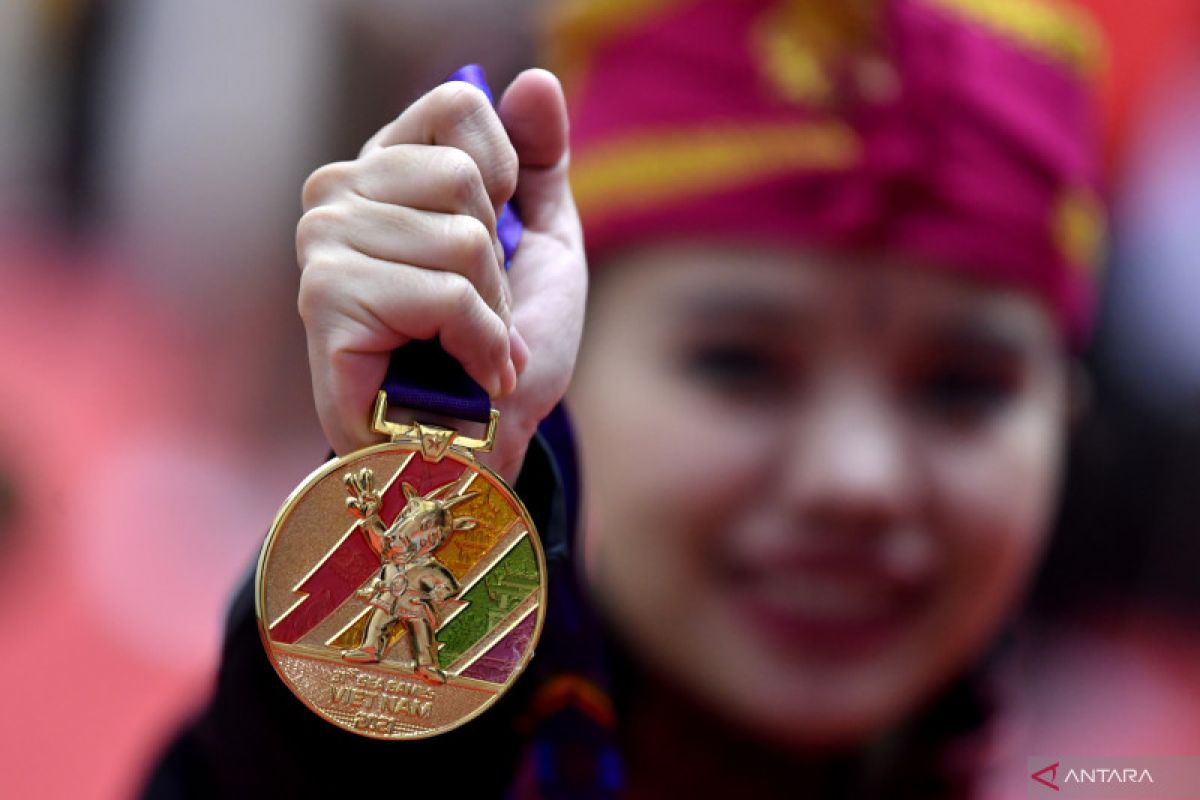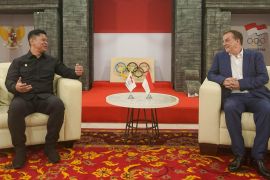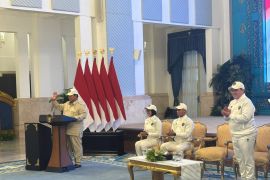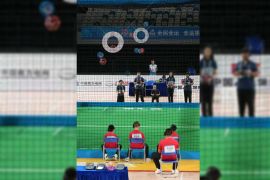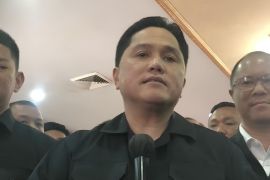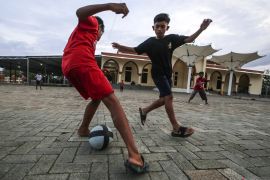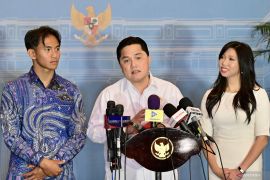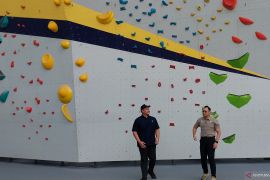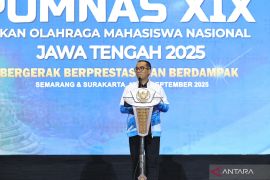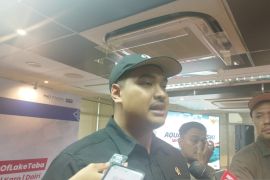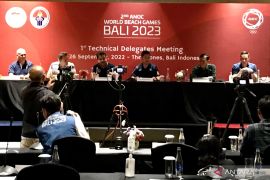She again became the focus of Internet discussions after writing an open letter once it was confirmed that she would not be sent for the Vietnam SEA Games, either using the state budget or personal funding.
In the open letter, the United States-born athlete complained that the current system does not provide enough opportunities for athletes to participate in international competitions.
Indonesia needs to carry out major reconstruction within the sports organizational structure, she opined.
There were similar reactions when the futsal sports branch was initially not included in the list of sports branches that would be sent for the 2021 SEA Games.
Internet users questioned the government's rationale for not deploying the Indonesian futsal national team to the SEA Games given that they reached the final round of the 2022 AFF Futsal championship last April.
The cases of Narenda and the national futsal team appear to be similar. They wished to participate in the Vietnam SEA games, but the government took a different decision.
Eventually, the Youth and Sports Ministry decided to deploy the men’s futsal team, but did not send rhythmic gymnastics athletes, including Narendra, for the international sporting event.
This is because the government chose to only deploy athletes and sports branches that can potentially bag medals at the SEA Games in Vietnam.
The national futsal team was deemed capable of clinching at least a silver medal at the SEA Games.
Meanwhile, Narendra was considered to not have that capability or a good track record in regional and international multi-events and single events.
For the 2021 SEA Games, the Indonesian gymnastics team only sent four athletes who will compete in the artistic event alone.
This is because Indonesia has previously won gold medals in the event during the 2019 SEA Games in the Philippines.
Overall, Indonesian gymnasts won two golds, four silvers, and four bronzes at the 2019 SEA Games.
The two gold medals were bagged by Agus Adi Prayoko (men's vault) and Rifda Irfanaluthfi (women's vault) in the artistic event.
The four silver medals were obtained in the all-round, balance beam, floor artistic events, and mixed trio-aerobics event.
Meanwhile, not a single Indonesian athlete managed to strike gold in the rhythmic gymnastics event, with the medal collection dominated by Malaysia, the Philippines, and Thailand.
A different system
The ministry has now adopted different parameters for deploying athletes for international multi-events by creating a new paradigm that aligns with the National Sports Grand Design (DBON).
Namely, the SEA Games is now only considered a stepping stone, with the Olympics being the primary target.
This major change has been implemented starting from Vietnam and marks the first time that Indonesia has not sent as many athletes as possible to the Southeast Asian sports multi-event.
For the 2021 SEA Games, Indonesia has only dispatched 499 athletes from 32 sports branches.
This figure is almost half the number of athletes that the country deployed for the 2019 SEA Games, when 841 athletes competed in 52 sports branches.
Moreover, Youth and Sports Minister Zainudin Amali has been unwilling to disclose the medal and last ranking targets as stakeholders had previously done for every international multi-event.
He underlined that SEA Games, beyond being a stepping stone, are also a starting point for ensnaring potential athletes who can raise their level at the Asian Games and the Olympics.
The minister urged DBON athletes and sports branches to focus on single events included within the 2024 Paris Olympics qualification.
Unfortunately, what is currently being done does not seem to be aligned with the initial intent and goal.
The ministry had formed the National Sports Achievement Improvement Review Team (PPON) and given it the responsibility of choosing athletes and sports branches for the SEA Games.
In its evaluation, the team, which comprised academicians and sports practitioners, only emphasized on the potential medals that athletes could bag at the SEA Games.
This affected many other athletes from the Olympics branch who could not participate in the SEA Games because they were excluded in favor of non-Olympic and non-priority branches.
E-sports, for instance, was not included in the DBON and whether the competition for the branch can be held at the Asian Games is under question.
However, E-sports ended up taking a big chunk of the athlete quota (38 athletes) at the Vietnam SEA Games.
Indonesia also obtained a quota of 10 for the non-priority sports branch Vovinam, a sport from Vietnam. The athletes from the sports branch were deployed because they were deemed to have a high potential to win gold for Indonesia.
While it sparked a debate, the Review Team’s head, Moch Asmawi, said that the decision is already accurate for the sake of fixing national achievement sport.
"This gold potential became our priority. Efficiency here is not a matter of quantity, but rather about gold and silver medals," Asmawi said.
"If they (non-DBON branches) cannot bag gold and silver medals, they will not be recommended (for the SEA Games)," he added.
Contrasting opinions
Despite this, he said that the team has no intention to close the door on young athletes looking to participate in the regional championship. However, the government is not willing to haphazardly deploy athletes to the Southeast Asia multi-event.
He then asked athletes who have not yet been allowed to participate in the SEA Games to not lose heart and continue to practice in order to prove themselves and rake an achievement.
Sports branch organizations must also continue to guide their athletes so that they can win an achievement.
Concerning the deployment of sports branches to the Vietnam SEA Games, the Review Team divided them into two categories, namely DBON branches and non-DBON branches.
Each athlete from the DBON branch is targeting to bag a gold, silver, or bronze medal. Meanwhile, athletes from non-DBON branches are required to contribute gold or silver medals.
However, one of the rowing athletes, Kakan Rusmana, provided another viewpoint concerning the deployment policy.
SEA Games is an important event for athletes to observe the result of their training, which they have undergone for several years, he said.
"It is very unfortunate if our colleagues from other sports branches who had worked, waited, and prepared themselves ended up not being deployed," he remarked.
"This SEA Games serves as one of the benchmarks for the success of our training," he added.
The sports event can show whether or not the athletes can compete at the Asia level, he said.
A similar opinion was also expressed by secretary general of the Indonesian Athletics Association's executive board (PB PASI), Tigor Tanjung. He said that there needs to be a clear standpoint concerning the status of the SEA Games.
"Earlier, we deployed as many athletes as possible, but now we only deploy athletes who can win a gold medal, but then there is a budget limitation in this SEA Games so only solidarity event with ASEAN countries," he said.
"It keeps changing," he remarked.
Developing a new sports achievement paradigm that can be accepted by the public, especially athletes, requires a long time.
However, the initial step conducted for this year’s Vietnam SEA Games deserves to be lauded for the sake of spurring athletes so that they can show their potential and become successful on the world stage.
The Vietnam SEA Games will be the start of the new sports achievement paradigm implementation.
To this end, we must wait and see whether reducing the number of athletes will make Indonesia improve or at least match its achievement at the 2019 SEA Games.
Related news: Indonesia seeks to retain women's shot put at SEA Games
Related news: Ministry supports KOI to apply strict selection for national athletes
Editor: Rahmad Nasution
Copyright © ANTARA 2022
